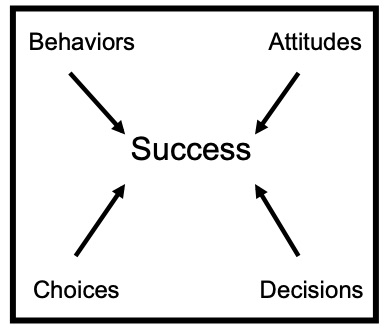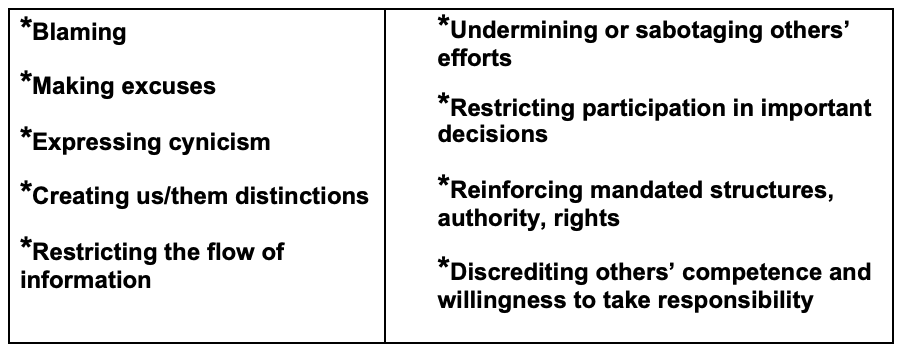Notes: Anger Examples called Undiscussables
Session #2 Anger Examples called Undiscussables
A problem or issue that someone hesitates to talk about with those essential to its resolution. A barrier to quality work and effective relationships.
The Four-Square Components:

All four have the potential to lead you to success. The “potential” to success. It does not just happen. This means you must be intentional about your habits. All habits become routine. If you guard your habits and make different choices when you need to change them, you will get different outcomes. That is the purpose of recognizing somethings work for you and somethings do not work for you. You must choose wisely more often, or, it leads to getting outcomes that can be detrimental to your health and well-being. That is why it is important when making decisions to change behaviors that do not work and try new behaviors.
Much of this process, behaviors, choices, decisions are based on Attitude.
Attitudes are Mental Habits
Reciprocal Self-protective Strategies

The antidote to acting out fear: Eliminate unwarranted fear/worry behaviors.
Symptoms of fear are:
· Frustration, anxiety, due to inability to control circumstances
· In the workplace, turf battles over resources, assignments, roles
· Complaining after a meeting is over rather than in the meeting
· “Us versus them” talk leading to complaints
· People exhibiting a scarcity rather than an abundance mentality
Fear is real and it can be healthy as well as unhealthy. Healthy fear is fear of putting your hand on a hot stove. Another example would the caution necessary around wild animals. It entails staying mentally alert in unfamiliar surroundings. Fear can result in the bullet points you see here and create the environments which lead to unnecessary anxiety. Fear is associated with the feeling of being out of control.
The workplace has its own set of challenges. Turf battles, miscommunication, misunderstanding, and unclear guidelines are examples. Being more interested in asserting ones-self into situations that lead to gossip is another factor attributed to varying degrees of fear.
Too often circumstances bring about more complaints than solutions in meetings. When courage to speak up at a meeting or you are prevented to speak because of cultural taboos, it leads to more complaining in and around the workplace. If it continues, it can boil over into heated discussion and lack of production; possibly becoming intolerable
Us and them is finger pointing and rarely helpful. When fear is unmanaged it changes many aspects of how performance is measured and rewarded. If it goes unchecked, it can lead to amplification of any or all the above. Sadly, it results in less. It produces, “scarcity” which ends up meaning fewer resources. Abundance requires an attitude that energizes and tends to increase the enthusiasm needed to build up the setting be it an office, a warehouse, a retail, a church, a practice, healthcare facility. Think about the environment you find yourself in and re-visit, re-direct your thoughts and expressions to thrive rather than smother your energy.
